
The Lafayette Collection includes many postcards related either to LaGrange College or LaFayette and are an assortment of cards collected by Dr. Waights Henry during his tenure as president of LaGrange College from 1948-1978. There are approximately 60 postcards in the collection.
Click on the images to view larger:
How old is your postcard?
Do you have an old postcard and curious about its age? If the postcard is used, check the date on the postmark. However, there are many postcards that were never mailed or that a part of the post mark is illegible or soiled. Here are some general guidelines to help determine the age range of your post card.
Date when postcards were first mailed:
1870 - Switzerland, Great Britain
1871 - Belgium
1872 - Russia, France
1873 - U.S. (government issued and pre-stamped), Romania, Japan
1874 - GermanyPostcards started to be sent internationally in 1875, after the first meetingof the General Postal Union in Berne, Switzerland.
The first commercial postcards produced in the U.S. were sold at the 1893 World's Columbian Exposition in Chicago Illinois. These were the first privately printed souvenir postcards in the country.
Does your card have the words "Private Mailing Card, Authorized by Act of Congress on May 19, 1898" on the back?
The words "Post Card" were not printed on postcards until December 24, 1901. Cards previous to that had to have the Private Mailing Card Statement. So, if your card is marked "Private Mailing Card," it dates from 1893 - 1901.
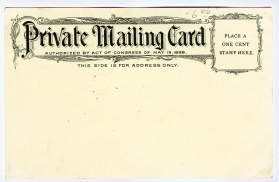
example 1 - pre-1901 private mailing card back
Is the address side divided?
A divided back postcard (example 3) has a line down the middle, or some other indication that one half of the back is for the address and the other half is for a message. Early postcards had an undivided back (example 2). The back of the postcard was for the address only. There was often a statement that said "this side for address only." The postal service started allowing the use of divided back postcards in March of 1907. If your postcard has an undivided back, it is from 1907 or earlier.
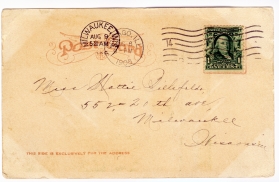
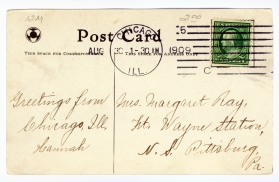
example 2 - undivided back example 3 - divided back
Does the postcard back indicated that it was printed in Germany?
Many early postcards were printed in Germany. The German cards were of exceptional quality and are some of the best examples of old postcards available. However, World War I shut down the German printing presses and cards started being printed in the United States or imported from Great Britain. If your early postcard says it was printed in Germany, it is from before 1915.
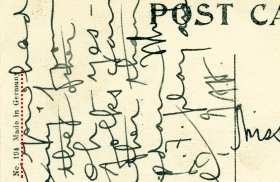
example 4 - mark is underlined in red
Is there a white border around the picture?
The White Border era dates from 1915 to 1930. The white border was introduced by the U.S. during World War I in order to save ink and estimated to have saved 20% more ink.
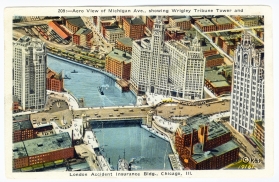
example 5 - white border non-linen
Does the postcard paper have a texture like woven linen?
Postcards from 1930 to 1944 were printed on a linen texture paper. They also used brightly colored inks. Borders are not uncommon.
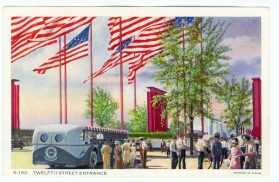
example 6 - linen with a border
Does the postcard have a shiny finish on the front, with a color photographic image?
Photochrome postcards have been produced from 1945 to present. Colored borders, partial borders and scalloped edges can be found.
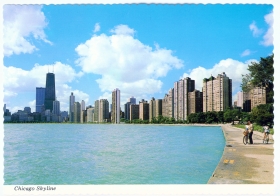
example 7 - photochrome with scalloped edging
The photochrome postcard should not be confused with Real Photo Postcards. Real photo postcards are actual photographs printed on postcard paper. The vintage ones are black and white photography. There may be some indication on the back of the card about the type of photo paper used - this is often indicated by the stamp box, which will be visible if your postcard is unused.
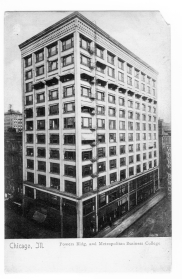
example 8 - real photo card ca. 1900 (undivided back)
Postcard Postage Rate History.
The postage stamp can help you figure out an approximate age of your postcard. There may be an exact amount of how much postage required to mail the postcard printed on the back of the postcard in the stamp box.
The chart below shows the postcard postage rates and may be helpful in determining the age of your card.
|
Postcard Postage Rate Changes |
|
| Date | Postage Rate |
| May 1, 1873 November 2, 1917 July 1, 1919 April 15, 1925 June 30, 1928 January 1, 1952 August 1, 1958 January 7, 1963 January 7, 1968 May 16, 1971 March 2, 1974 September 14, 1975 December 31, 1975 May 29, 1978 March 22, 1981 November 1, 1981 February 17, 1985 April 3, 1988 February 3, 1991 January 1, 1995 July 1, 2001 June 30, 2002 January 8, 2006 May 14, 2007 |
1¢ 2¢ 1¢ 2¢ 1¢ 2¢ 3¢ 4¢ 5¢ 6¢ 8¢ 7¢ 9¢ 10¢ 12¢ 13¢ 14¢ 15¢ 19¢ 20¢ 21¢ 23¢ 24¢ 26¢ |